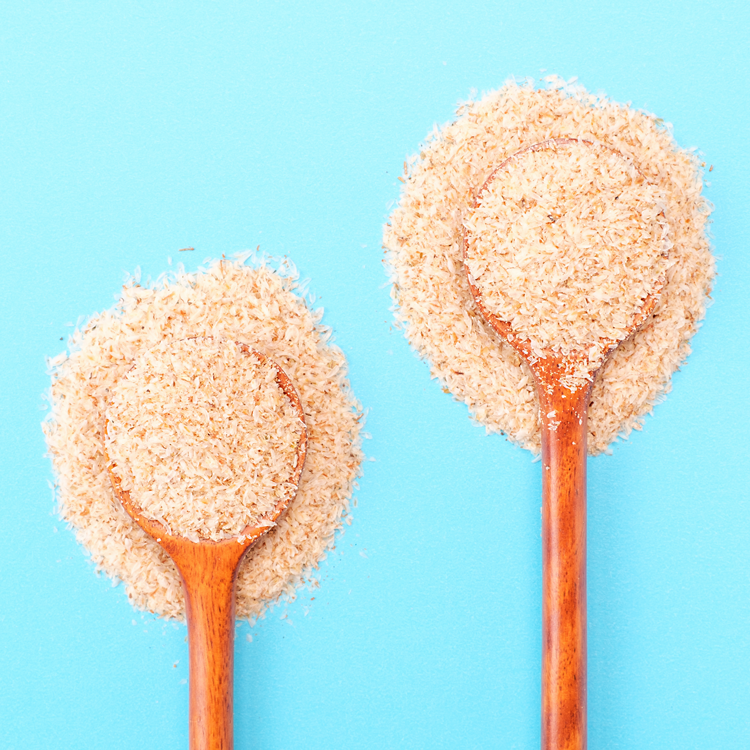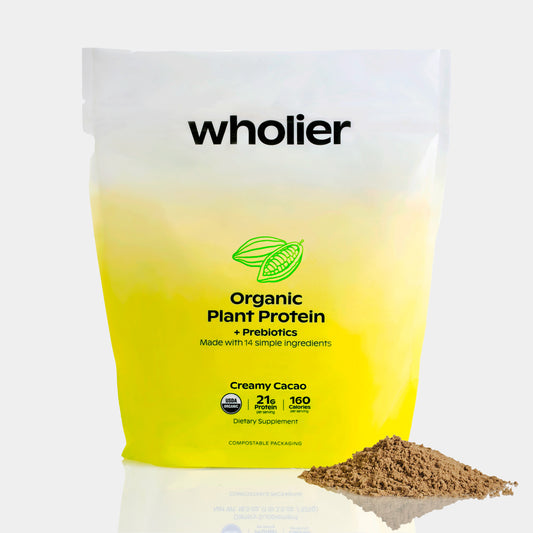
The Fiber Fix: How Psyllium Husk Can Help Support Weight Management
Psyllium husk is a popular supplement that has been used for centuries to promote digestive health. Derived from the seeds of the Plantago ovata plant, psyllium husk is a rich source of soluble fiber that has been shown to offer a range of health benefits, including weight loss.
But what exactly is psyllium husk, and how does it promote weight loss? Let’s take a closer look at this natural supplement and explore the science behind its weight loss benefits.
What is Psyllium Husk?
Psyllium husk is a type of soluble fiber that is derived from the seeds of the Plantago ovata plant. The seeds are ground into a fine powder, which is then used to make supplements in the form of capsules, tablets, or powders.
Soluble fiber is a type of dietary fiber that dissolves in water and forms a gel-like substance in the gut. This gel-like substance helps to slow down the digestion of food, which can help to keep you feeling fuller for longer and reduce your overall calorie intake.(1)
How Does Psyllium Husk Promote Weight Loss?
Psyllium husk has been shown to offer a multitude of weight loss benefits, thanks to its high fiber content. Here are some of the ways in which psyllium husk can help you shed those unwanted pounds or maintain a healthy weight:
1. Reduces Appetite
The high fiber content of psyllium husk can help to reduce your appetite and promote feelings of fullness. When you consume psyllium husk, it absorbs water and expands in your stomach, which can help to reduce hunger pangs and cravings.(2).
In a study published in the Journal of the American College of Nutrition, researchers found that participants who consumed psyllium fiber before a meal consumed fewer calories overall than those who did not consume psyllium fiber.(3)
2. Lowers Cholesterol Levels
Psyllium husk has been shown to lower cholesterol levels, which can help to reduce your risk of heart disease and improve your overall health.(4) High cholesterol levels are a risk factor for obesity, and by lowering your cholesterol levels, you may be able to promote weight loss.
In a study published in the Journal of Nutrition, researchers found that participants who consumed psyllium fiber for six weeks had significantly lower total cholesterol levels than those who did not consume psyllium fiber.(5)
3. Regulates Blood Sugar Levels
Psyllium husk can help to regulate blood sugar levels, which is important for weight loss. When your blood sugar levels are stable, you are less likely to experience cravings and overeat.(6)
In a study published in the Annals of Internal Medicine, researchers found that participants who consumed psyllium fiber had lower blood sugar levels after meals than those who did not consume psyllium fiber.(7)
4. Increases Satiety
Psyllium husk can increase satiety, which can help to reduce your overall calorie intake. When you feel full and satisfied after a meal, you are less likely to reach for unhealthy snacks or overeat at your next meal.
In a study published in the Journal of Nutrition, researchers found that participants who consumed psyllium fiber had higher levels of satiety hormones than those who did not consume psyllium fiber.(8)
5. Improves Gut Health
Psyllium husk can also improve gut health, which is important for weight loss. A healthy gut can help to promote the absorption of nutrients and reduce inflammation, which can lead to weight gain.
In a study published in the Journal of Nutrition, researchers found that participants who consumed psyllium fiber had improved gut health and reduced inflammation compared to those who did not consume psyllium fiber.(9)
How Much Psyllium Husk Should You Take?
When it comes to taking psyllium husk for weight loss, it's important to follow the recommended dosage guidelines. A common dosage used in studies ranges from 5 to 10 grams per day, divided into two or three doses.(10) It's recommended to start with a small dose and gradually increase it over time to allow your body to adjust. It's crucial to drink plenty of water when taking a psyllium husk supplement as it absorbs water. Not drinking enough water can lead to constipation or other digestive issues.(11)
Psyllium husk is a natural supplement that has been shown to offer a range of weight loss benefits. Its high fiber content can help to reduce appetite, lower cholesterol levels, regulate blood sugar levels, increase satiety, and improve gut health. Incorporating psyllium husk into your daily routine is a simple and effective way to support weight loss – in conjunction with a balanced diet and exercise, of course!
Sources:
(1) Slavin, J. (2013). Fiber and prebiotics: mechanisms and health benefits. Nutrients, 5(4), 1417-1435.
(2) Pal, S., Khossousi, A., Binns, C., & Dhaliwal, S. (2011). The effect of a fibre supplement compared to a healthy diet on body composition, lipids, glucose, insulin and other metabolic syndrome risk factors in overweight and obese individuals. British Journal of Nutrition, 105(1), 90-100.
(3) Rebello, C. J., Johnson, W. D., Martin, C. K., Xie, W., & O’Shea, M. (2016). Effects of a dietary supplement containing psyllium fiber and chromium picolinate on body composition and weight loss parameters in overweight and obese subjects. Journal of the American College of Nutrition, 35(7), 580-591.
(4) Anderson, J. W., & Allgood, L. D. (2007). The role of psyllium in hypercholesterolemia management. The American Journal of Clinical Nutrition, 85(3), 517-518.
(5) Anderson, J. W., Allgood, L. D., Turner, J., Oeltgen, P. R., & Daggy, B. P. (2000). Effects of psyllium on glucose and serum lipid responses in men with type 2 diabetes and hypercholesterolemia. The American Journal of Clinical Nutrition, 71(2), 472-479.
(6) Kaczmarczyk, M. M., Miller, M. J., & Lichtenstein, A. H. (2012). Effects of psyllium on glycemic control, serum lipoproteins and blood pressure in patients with type 2 diabetes mellitus. Metabolism, 61(8), 1165-1171.
(7) Jenkins, D. J., Kendall, C. W., Augustin, L. S., Martini, M. C., Axelsen, M., Faulkner, D., ... & Connelly, P. W. (2002). Effect of wheat bran on glycemic control and risk factors for cardiovascular disease in type 2 diabetes. Diabetes Care, 25(9), 1522-1528.
(8) Wanders, A. J., van den Borne, J. J., de Graaf, C., Hulshof, T., Jonathan, M. C., Kristensen, M., ... & Mars, M. (2014). Effects of dietary fibre on subjective appetite, energy intake and body weight: a systematic review of randomized controlled trials. Obesity Reviews, 12(9), 724-739.
(9) Martínez, I., Lattimer, J. M., Hubach, K. L., Case, J ., Yang, J., Weber, C. G., ... & Haub, M. D. (2013). Gut microbiome composition is linked to whole grain-induced immunological improvements. The ISME Journal, 7(2), 269-280.
(10) Rebello CJ, Johnson WD, Martin CK, Xie W & O'Shea M (2016). Effects of a dietary supplement containing psyllium fiber and chromium picolinate on body composition and weight loss parameters in overweight and obese subjects. Journal of the American College of Nutrition 35(7), 580-591.
(11) Pal S, Khossousi A, Binns C & Dhaliwal S (2011). The effect of a fibre supplement compared to a healthy diet on body composition, lipids, glucose, insulin and other metabolic syndrome risk factors





